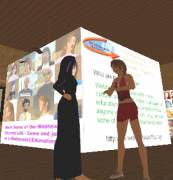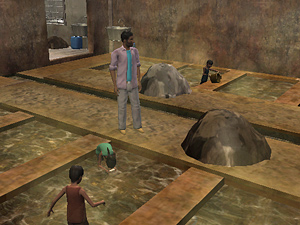 Welcome to AbsolutelyIntercultural, the podcast where we look at all things intercultural. We’re going to see if playing games can increase your intercultural knowledge. I’m talking about serious games which are becoming more widespread in education at all levels.
Welcome to AbsolutelyIntercultural, the podcast where we look at all things intercultural. We’re going to see if playing games can increase your intercultural knowledge. I’m talking about serious games which are becoming more widespread in education at all levels.
absolutely serious
Mikkel Lucas Overby works for a Danish company Serious Games Interactive which has produced several games both in Danish and English which are mainly aimed at high school students. The games explore topics which we all know something about such as the Israeli Palestinaian conflict, child soldiers in Arifca or child labour in Asia. But the difference here is that you are on the ground and have to deal with the situation by interacting with the different people involved. I tried out a couple of these and so did my daughter, Gwen. But are there limits even within Serious Games? It seems yes when you hear what Mikkel has to say about their forthcoming game about the slave trade. I started by asking him how the Serious Games Interactive company started and how they chose the topics of their games.
absolutely playful
As you heard I got to play a couple of their games and so did my daughter Gwen who took on the role of a buyer from a European clothes company inspecting reports that the factory which sources their leather uses child labour. How did she fare?
absolutely military
And what about war? We’ve mentioned this before on Absolutely Intercultural but one of the groups which need intercultural communication skills the most are soldiers. Think for example about the situation in Afghanistan where you need to get on with the locals for all sorts of reasons including to get a continual stream of information from them. In the game ‘Connecting with Haji Kamal’, Lieutenant Justin Harril is about to meet Haji Masoud Kamal, an influential local leader who Harril hopes will become a longterm contact. Harril knows that Haji Kamal is going to offer him chai, the local tea which he really doesn’t like? We hear the advice offered by two other officers. The Lieutenant has the following choices, refuse saying he’s not thirsty, refuse saying he’s allergic or accept. What’s the best choice? The game is available online from the World Warfighter company which specialises in military intercultural training through games.Earlier we had a taste of the type of interaction faced by soldiers in Afghanistan. The game Connect with Haji Kamal is available online at worldwarfighter.com and takes about 10 minutes to play. You heard the first dilemma at the beginning of the show when Lieutenant Harril is offered tea which he thinks he won’t like. What did you decide he should do? Of course if you refuse his hospitality then that won’t start your relationship with him on a good footing. How might the visit continue? The soldiers noticed a field of cannabis plants growing close by Haji Kamal’s house – should they mention it? So the choices are to compliment Haji Kamal on his cannabis crop, admire the hills or suggest that you get down to business. What would you choose? I think this game would be a great discussion starter plus it is a great way to try out various strategies without the consequences being too bad as you can always re-start the game. So what if you had refused the tea? If you want to see how the situation develops you’ll have to go to the worldwarfighter website and play the game yourself. And if you have any comments about how you did or what you think of the game then you can leave them at the end of this blog post.
absolutely virtual
There are intercultural games for children in the virtual world of Wiglington and Wenks where you can visit Brazil, London and Madagascar finding out about the places as you go. I sent my younger daughter, Mia on safari to explore Wiglington and Wenks. I had a feeling she was older than the target group but younger children might learn something about the world in Wiglington and Wenks.
And there are also intercultural quizzes in one of the most famous virtual worlds of them all, Second Life. SIETAR is the society for intercultural education, training and research and they have equipped a whole floor of their building in Second Life with over 30 quizzes about different countries. So for example in the quiz on Sweden you can answer a question about being offered a pat of butter on a butter knife at a dinner. What happens to the knife? Do you only use it to put the butter on your plate, or use it to butter your bread and then return it or use it and keep it as yours? The answer is butter your bread and return it. If you want to try the rest of the quiz or quizzes for other countries then you can find the link to SIETAR’s place in Second Life here.
So what do you think? Could playing computer games help raise your intercultural awareness? Did we miss out some really good digital intercultural games? I’d be very curious to hear about your experiences with any of the games I’ve mentioned and any that I missed out.
The next show will be coming to you on 29th October from Dr. Laurent Borgmann in Germany.
Until then have fun!
The host of this show is: Anne Fox
Editor: Dino Nogarole

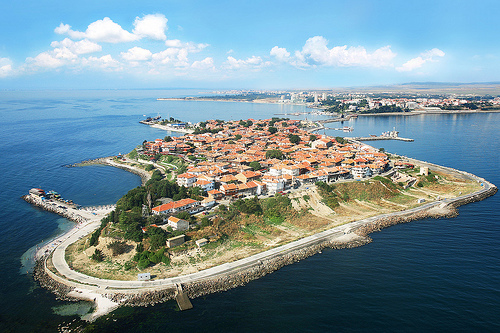
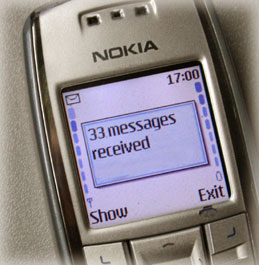

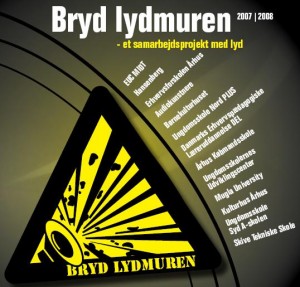

 In this episode we talk about how new web2.0 technologies and tools such as the three dimensional virtual world Second Life and Podcasting are changing the way we learn, the way we teach and how we shape and influence the process – so generally speaking – how web2.0 is changing the culture of education.
In this episode we talk about how new web2.0 technologies and tools such as the three dimensional virtual world Second Life and Podcasting are changing the way we learn, the way we teach and how we shape and influence the process – so generally speaking – how web2.0 is changing the culture of education.